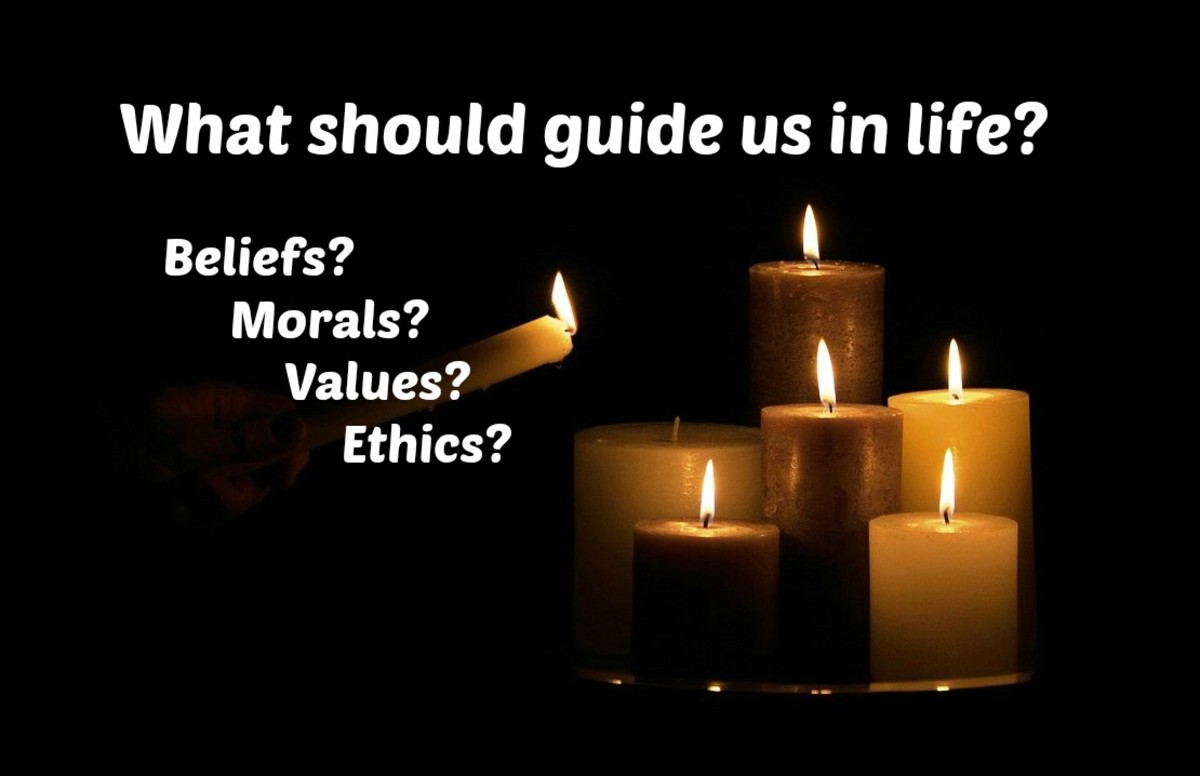- HubPages»
- Entertainment and Media»
- Movies & Movie Reviews»
- Science Fiction & Fantasy Films
Ethics and Technicalities in The Imaginarium of Doctor Parnassus
A major problem with The Imaginarium of Doctor Parnassus is that the mechanism of the imaginarium is never made clear enough to prevent its workings from seeming arbitrary and is even not always as it’s loosely described. Why is Tony given no option of salvation, for instance? How does Valentina choose evil and so become the fifth soul, if that is indeed what she does, by being manhandled into a dance with the devil, breaking away and departing through a mirror? Does Anton die when he falls into the chasm? If he does, why does he? We’ve seen, in the imaginarium, people flying about the place and apparently teleporting. If he doesn’t die (and it is him we see at the end), why is Valentina so upset when he falls? If her understanding of events in the imaginarium is affected when she’s actually in the imaginarium, just as my understanding of events in dreams is affected when I’m actually dreaming, why is this affect not consistently observable; why, for instance, can Anton and Tony sit down and discuss Tony’s criminal past in the imaginarium exactly as they would do outside of it? Why, for that matter, can Anton and Tony just voluntarily and simply walk out of the imaginarium on that occasion? Things like this.
What’s more though, the conceptions of good and evil at work in the mechanism of the imaginarium are not generally understandable and, in so far as they are understandable, not right, or not well argued for. I mean, why should choosing to float off on a gondolier signify choosing good, why should it represent surrendering life and why, for that matter, should surrendering life (for no particular reason, or for the sake of eternal fame) be understood as good? Or, equally, why should the one-night stand be recognised as a staple of immorality? And how does choosing to climb a literal mountain (rather than walk into a literal pub) equate to choosing good over evil? And what is wrong, fundamentally, with running to mummy when you’re scared? And why would bashing people up in your capacity as a police officer be a good thing, or even just a better thing than bashing people up in your capacity as an institutionless thug, or a better thing than running to mummy?
Sort out the conceptions of good and bad at work in the mechanism of the imaginarium and you’re over half way there, though there are, I think, other problems with the moralism of the film. Why, I want to know, are all the punters who go through the imaginarium caricatures of evil? Even in those who are successful, we see no sign of the redeeming qualities that enable them to choose right over wrong. The three women in the supermarket who go into the imaginarium unaccompanied come out successful, but it’s hard to see how; they seem mindless consumers and fad-followers, no better (and also, I feel it’s important to say, no worse) than the drunkard who goes in at the beginning of the film. Also, is a woman really good (really worthy of salvation) if she is persuaded to do the right thing on one occasion by the rhetoric and charms of her ideal man?
In short, it seems to me that the moral struggles, the fights for people’s souls, that occur in the imaginarium are always simplistic, confused and glossed over to the film’s detriment. Gilliam is fantastically inventive, a great animator and a great director in lots of ways, but not, I think, one who dedicates much thought to moral problems.
The people who go in, choose evil and therefore don’t come out – are they to be understood as simply evil? I don’t like this sharp distinction. What if they’d gone into the imaginarium in different moods or at different points in their lives? What if their tests had been different ones? Is there no possibility of their improvement?
And why is the devil, in contrast to these people, given a good side; why does he free Valentina and why does Parnassus trust him to do so. Perhaps it could be argued that Parnassus knows the devil will give him back his daughter because, without his daughter, Parnassus would not value anything any longer and so would not be interested in any of the devil’s wagers, but how does Parnassus know that Tony is not telling the truth when he says that Valentina got away and that the devil is now trying to trick Parnassus into securing for him the last of the five souls? ‘Everything happens for a reason’ is something Parnassus says to Valentina about midway through the film, so perhaps he gives Tony the choice between the two pipes because he thinks simply that, by doing so, he will enable providence to show who’s telling the truth and so, at the same time, rightly determine the content of his decision. But… wouldn’t providence have taken its course anyway? And why fight to win people’s souls at all if providence settles such matters? … I don’t know. I don’t really understand this ‘everything happens for a reason’ idea.
Perhaps I’ve just not grasped the moral scheme of the film. There are other little things. The alterations made to get round the problem of Ledger’s death take their toll. The cinematography, though occasionally incredible, does not always do the story justice, and the dialogue could sometimes make more of situations. Perhaps the characters could be slightly richer too. Having said all this, I am utterly captivated by the film, I love it, and I look forward to watching it again and hopefully finding answers to some of these questions.







